Announcement

Due to the COVID-19 pandemic, all our offices are operating on a skeleton workforce. For inquiries, please get in touch with us via the emails listed on our contact page.

August 10, 2018
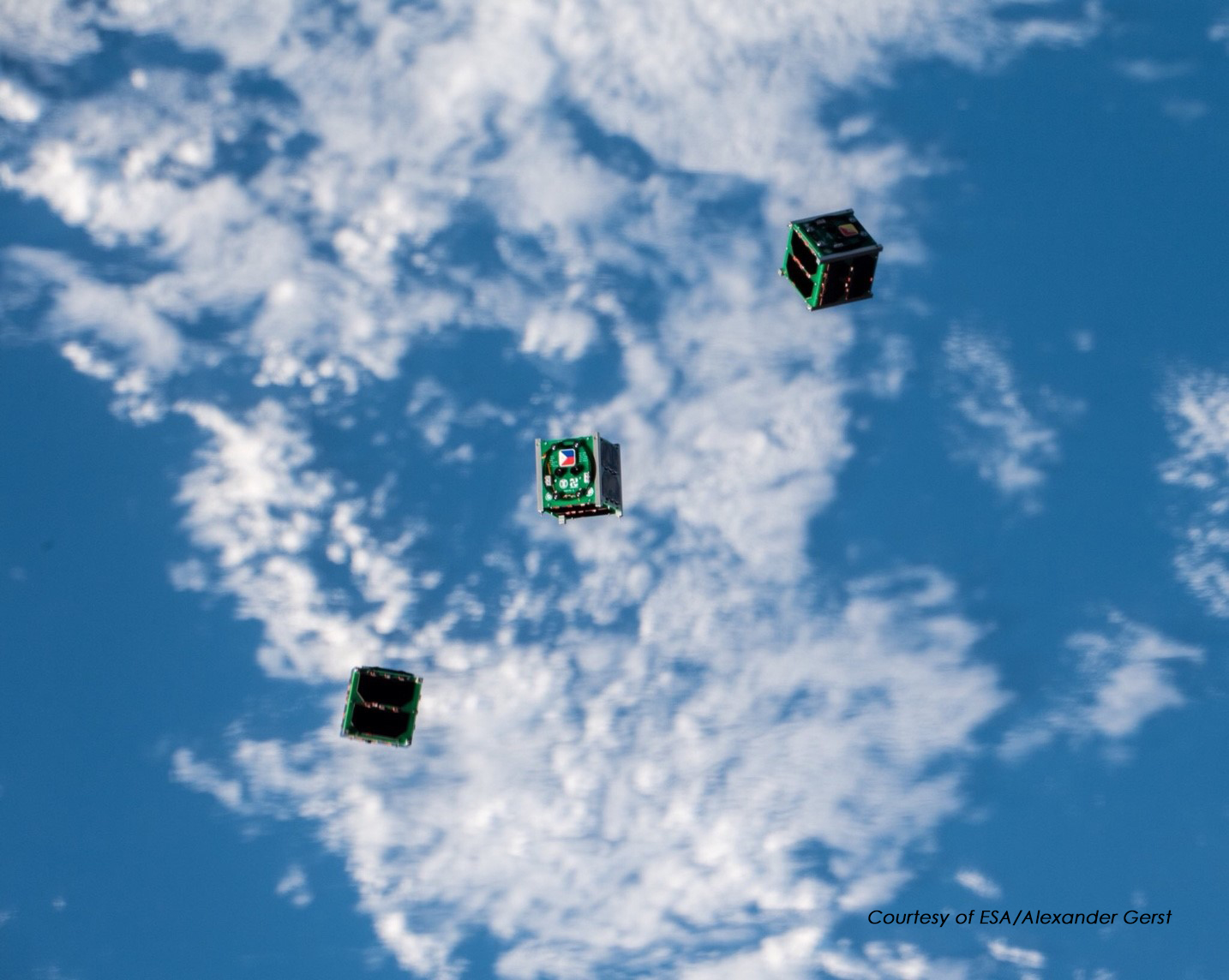
BIRDS-2 CubeSats released to space from International Space Station (ISS)
Maya-1 (Philippines), BHUTAN-1 (Bhutan), and UiTMSAT-1 (Malaysia) deployed to space via the International Space Station (ISS)’ Japanese Kibo Module.
Maya-1 1st pass over Philippines
1st pass over the country tracked and 1st beacon signal from orbit received via UP Amateur Radio Satellite Station (ARSS) Ground Station
Learn more
October 29, 2018
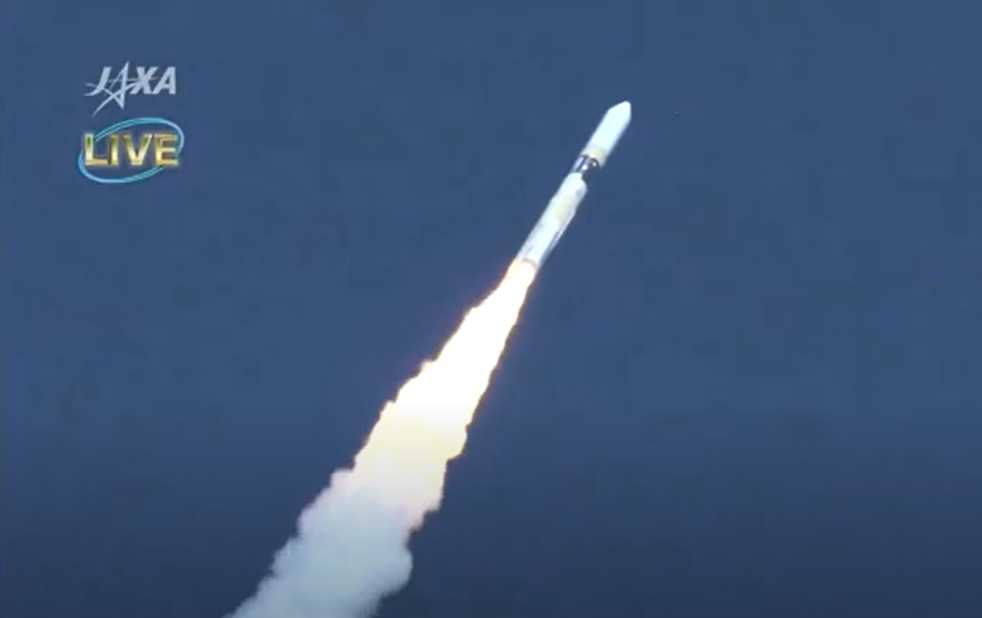
Diwata-2 launched to space
Diwata-2 successfully launched to space from the Tanegashima Space Center, Japan via H-IIA F40 rocket at 12:08 GMT+08
First contact
Initial contact with the PEDRO Center successfully made at 13:52 GMT+08
Learn more
November 15, 2018
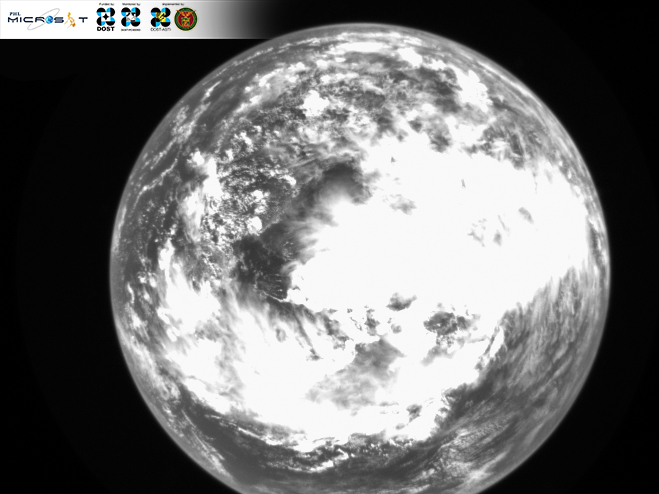
Diwata-2 captures first images of the Philippines
Diwata-2 has successfully captured its first set of images, which includes a portion of the Earth and some parts of the Philippines’ Aurora and Kalinga provinces.
Learn more
January 18, 2019
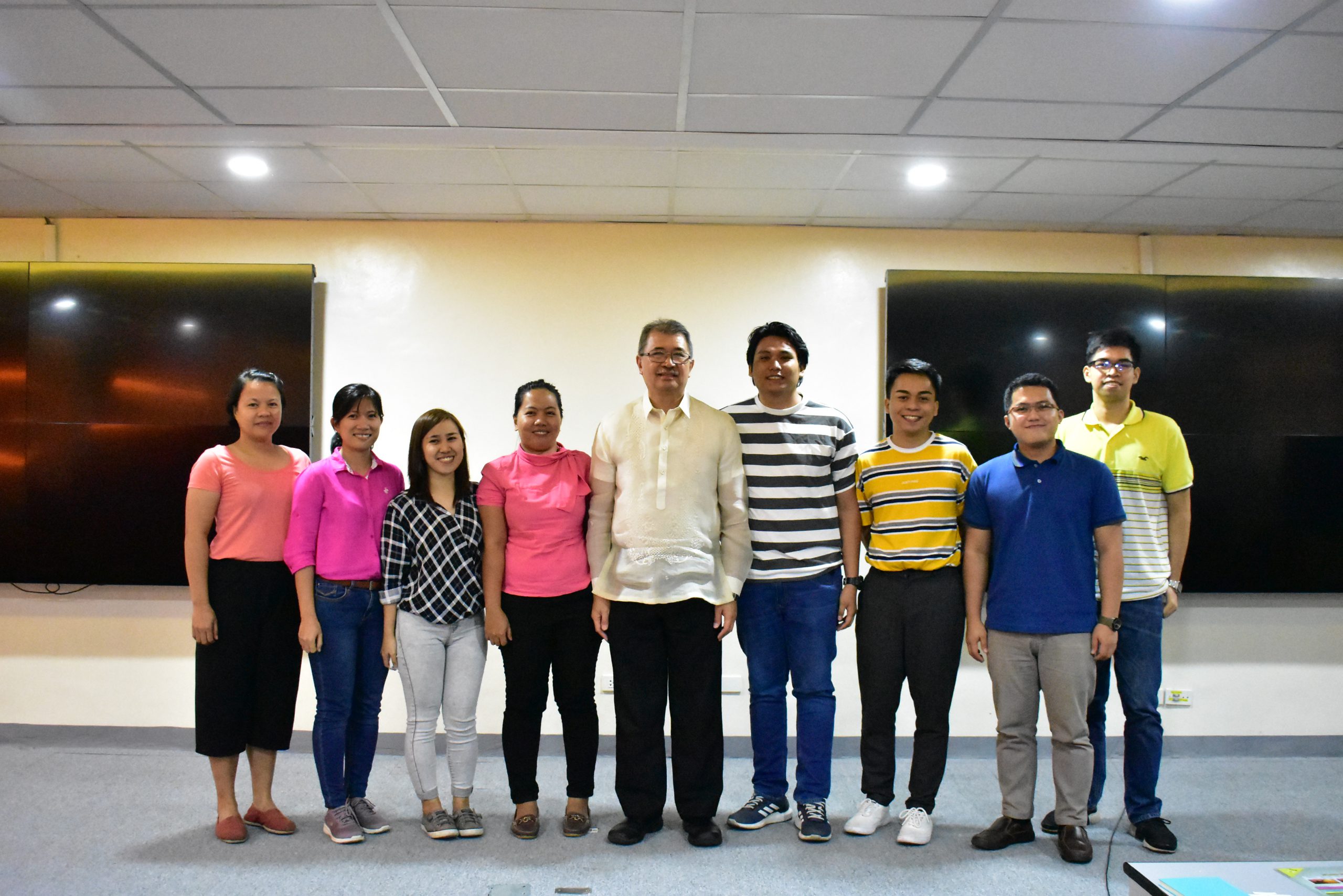
STeP-UP scholars Batch 1 kickoff
The 1st batch of STeP-UP scholars in MS/MEng in Electrical Engineering under the nanosatellite engineering track formally kickoff their scholarship.
STeP-UP scholars (from left to right): Christy Raterta, Marielle Magbanua-Gregorio, Gladys Bajaro, Lorilyn Daquioag, Renzo Wee, Bryan Custodio, Judiel Reyes, and Derick Canceran with DOST Secretary Fortunato dela Peña (center).
Learn more
February 14, 2019
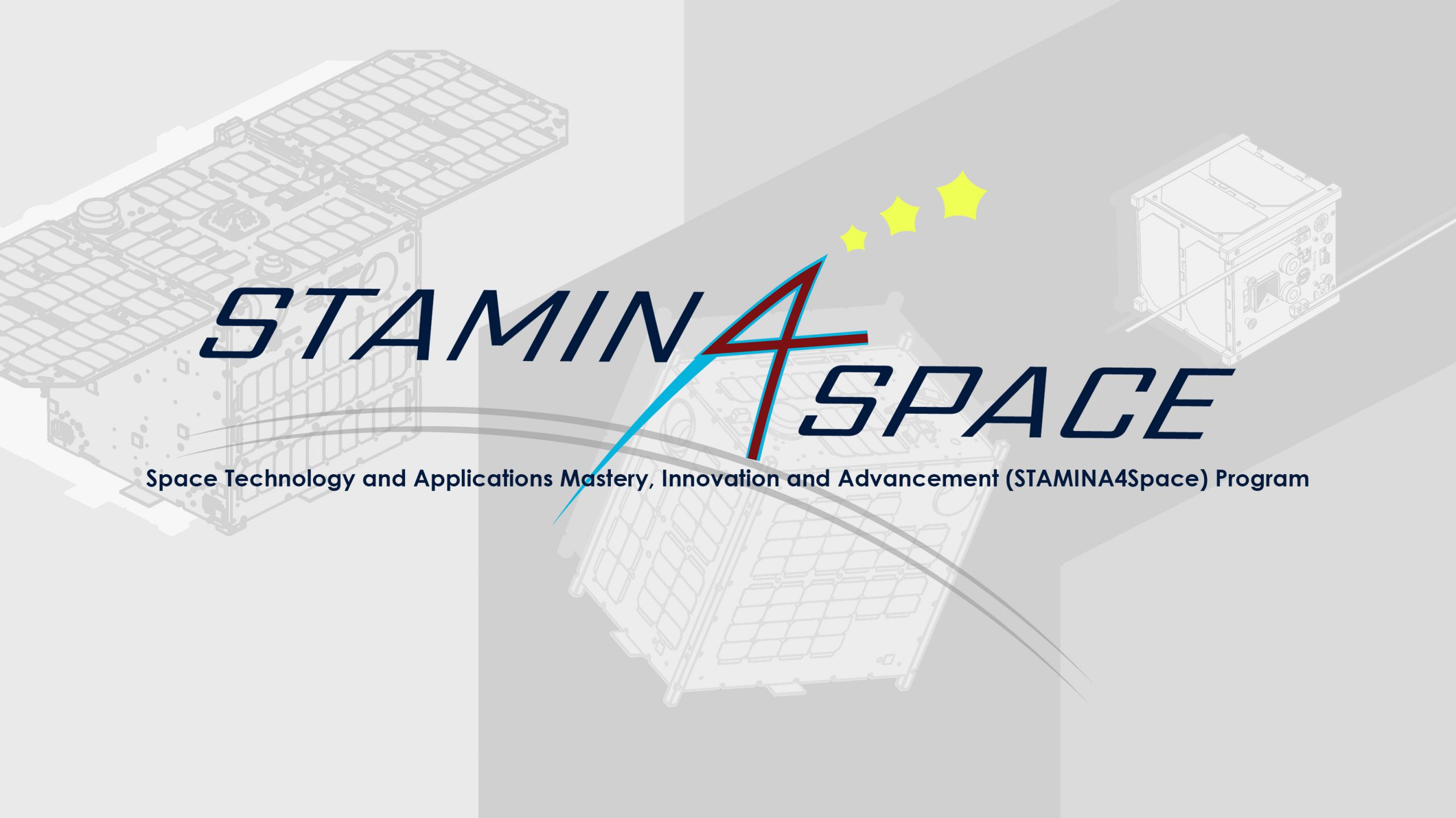
The PHL-Microsat Program fully transitions to the STAMINA4Space Program
The Development of Philippine Scientific Earth Observation Microsatellite (PHL-Microsat) Program is succeeded by the Space Technology and Applications Mastery, Innovation and Advancement (STAMINA4Space) Program, and was referred to as such from this day forward.
Learn more
April 11, 2019
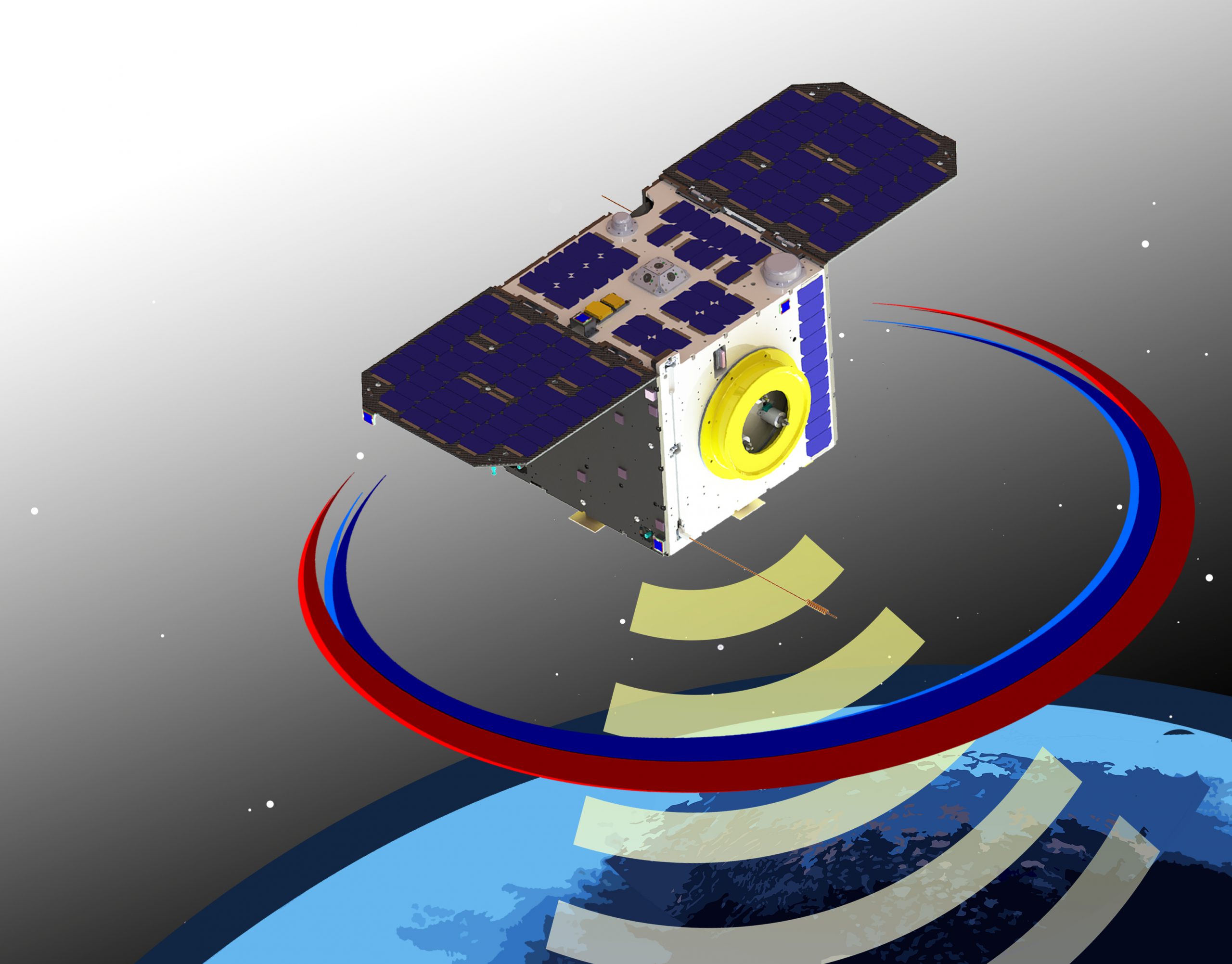
AMSAT designates Diwata-2 as Philippines-OSCAR 101 (PO-101)
Diwata-2’s Amateur Radio Unit (ARU) was designated as Philippines-OSCAR 101 (PO-101) upon the program’s request.
Learn more
April 26, 2019
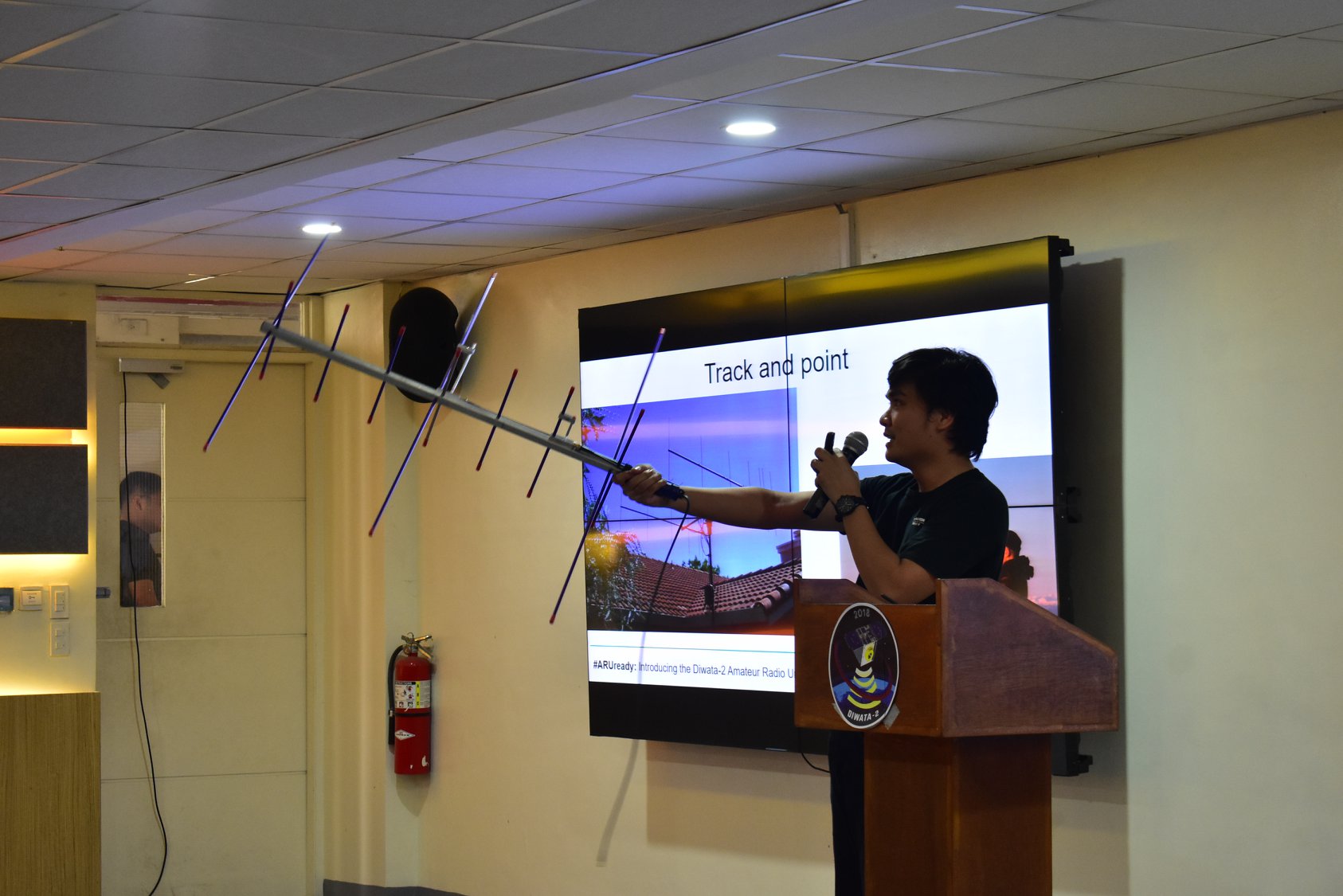
PO-101 announced ready for service
Diwata-2’s Amateur Radio Unit (ARU), PO-101, can now accessible to licensed amateur radio users worldwide
Watch video
August 31, 2019
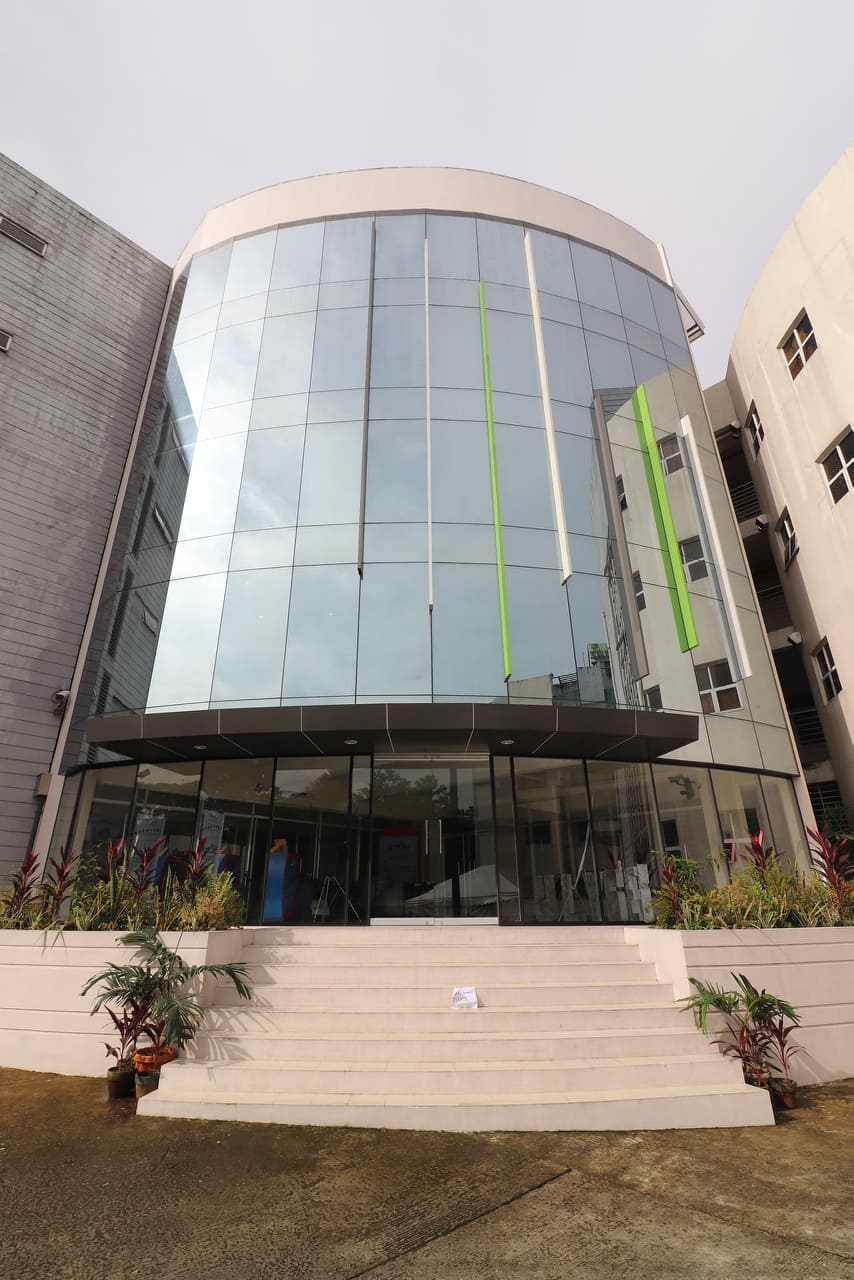
UP, DOST inaugurate the University Laboratory for Small Satellites and Space Engineering Systems (ULyS³ES)
ULyS³ES (pronounced, yuˈlɪs iz or yoo-lis-eez) is intended to serve as an academic hub for interdisciplinary R&D and instruction innovations in space technology in the Philippines.
Learn more
November 8, 2019
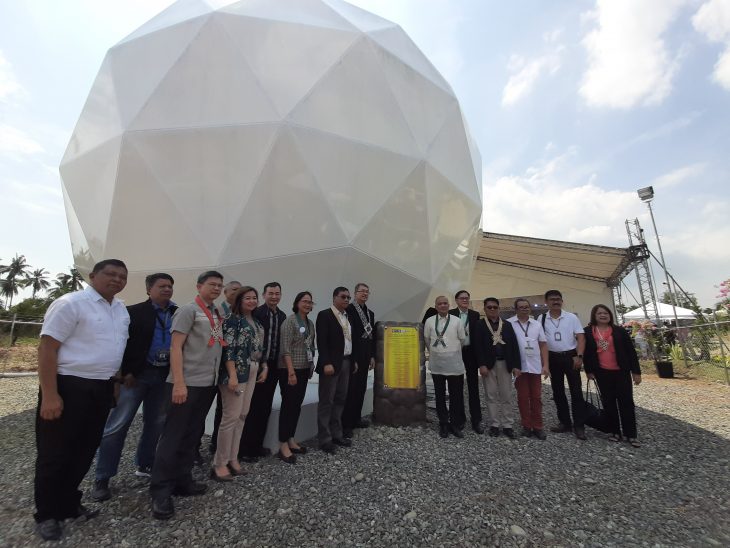
DOST-ASTI inaugurates Davao Ground Receiving Station (D-GRS)
Three years after the establishment of the first Ground Receiving Station (GRS) in Metro Manila, the Philippine Earth Data Resource and Observation (PEDRO) Center finally unveiled the Davao GRS last November 8, 2019.
Learn More
March 20, 2020

Diwata-1 altitude decreases, signals coming end of mission
While it has outlived its initially projected lifespan of 18 months, a gradual decrease in altitude was observed.
Learn more
April 6, 2020
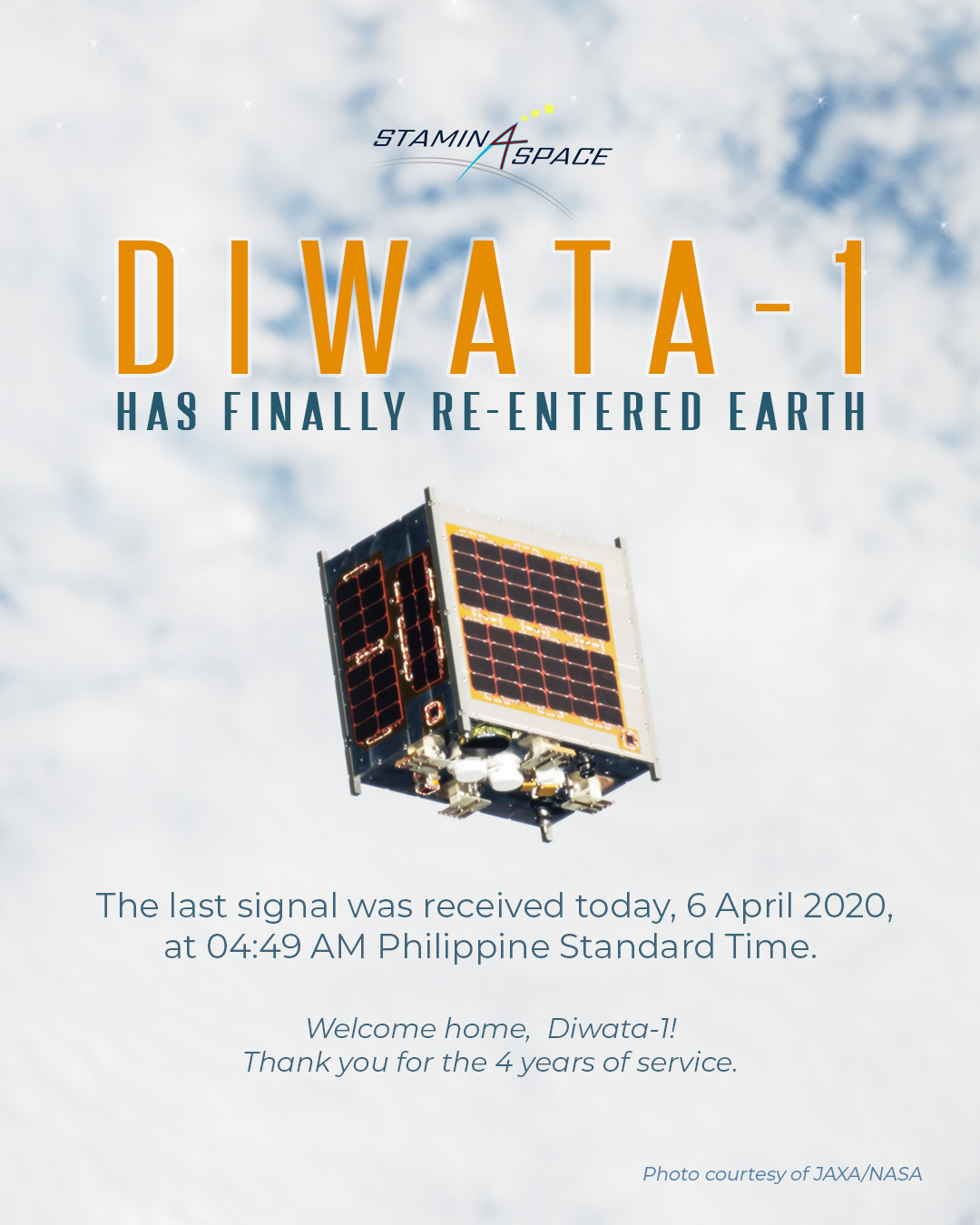
Diwata-1 re-enters Earth, ends mission
After nearly four years of its journey in space, Diwata-1 retires as it re-enters the Earth’s atmosphere.
Learn more
21 February 2021

Launch to the International Space Station
The BIRDS 4 Satellite Project – KyuTech CubeSats launch to the International Space Station on February 21, 2021 (Sunday) at 1:36 a.m. PHT (February 20/Saturday at 17:36 in UTC) to watch Maya-2 (Philippines), Tsuru (Japan), and GuaraniSat-1 (Paraguay) liftoff from Earth aboard the S.S. Katherine Johnson Cygnus spacecraft as part of the Northrop Grumman CRS-15 mission.
Photo Courtesy of NASA
April 28, 2021
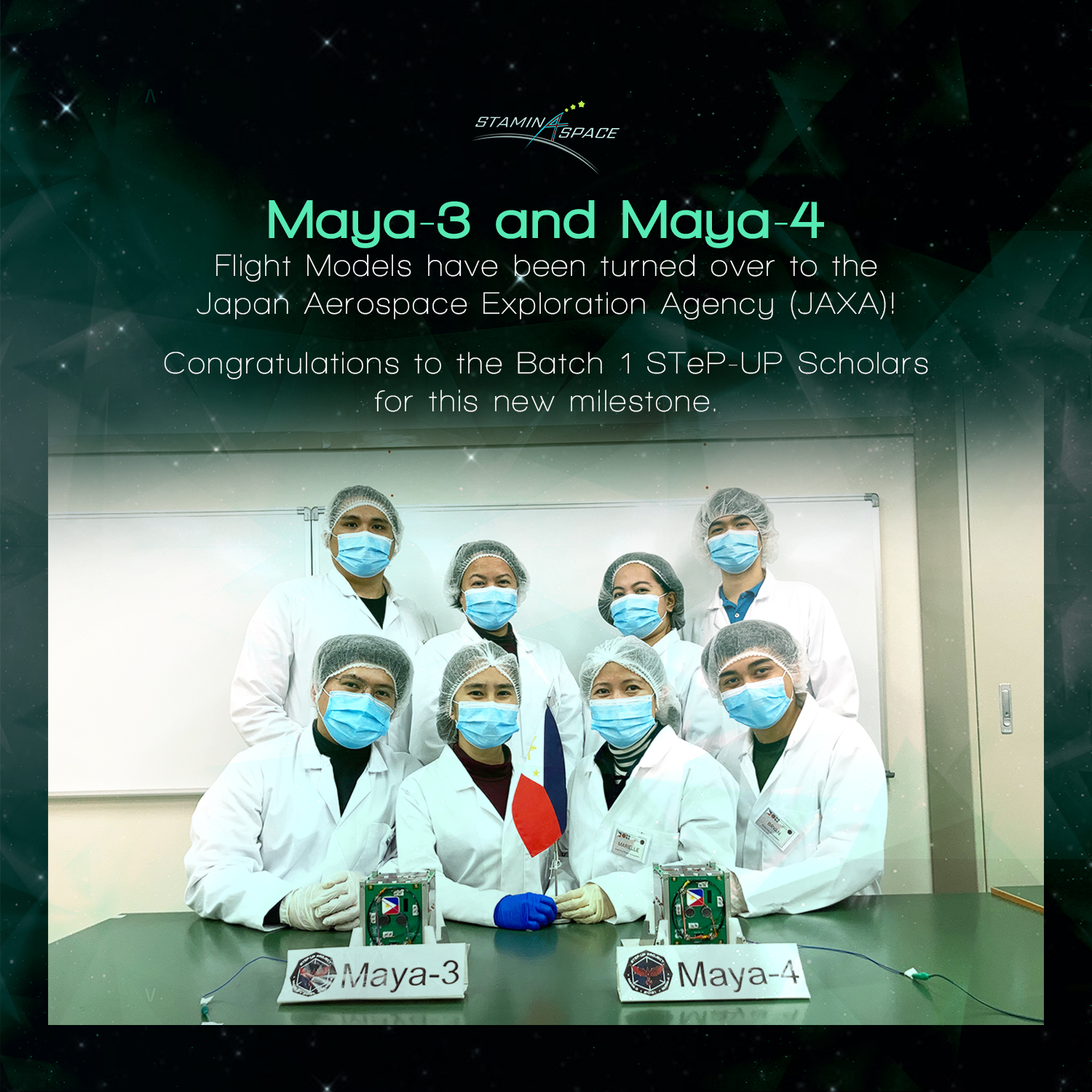
Maya-3 and Maya-4 Successfully turned-over to Japan Aerospace Exploration Agency (JAXA)
14 March 2021
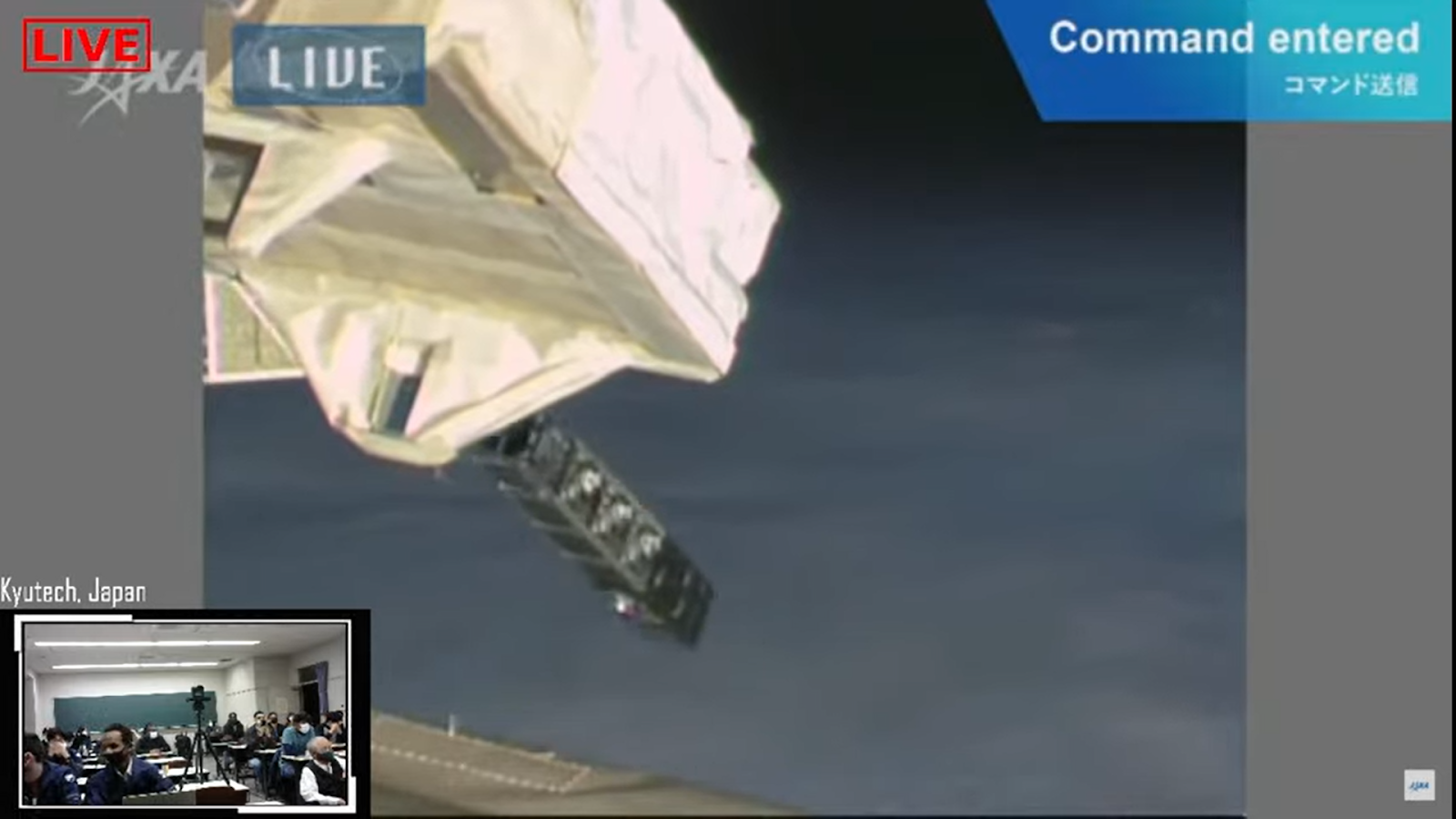
Release to Space from the International Space Station
Maya-2, a cube satellite (CubeSat) made by Filipino engineers studying in Japan, was released to space from the International Space Station (ISS) on March 14, 2021 at around 7:20 p.m. PHT.
Photo from the JAXA Live Stream
Learn more
July 5, 2022
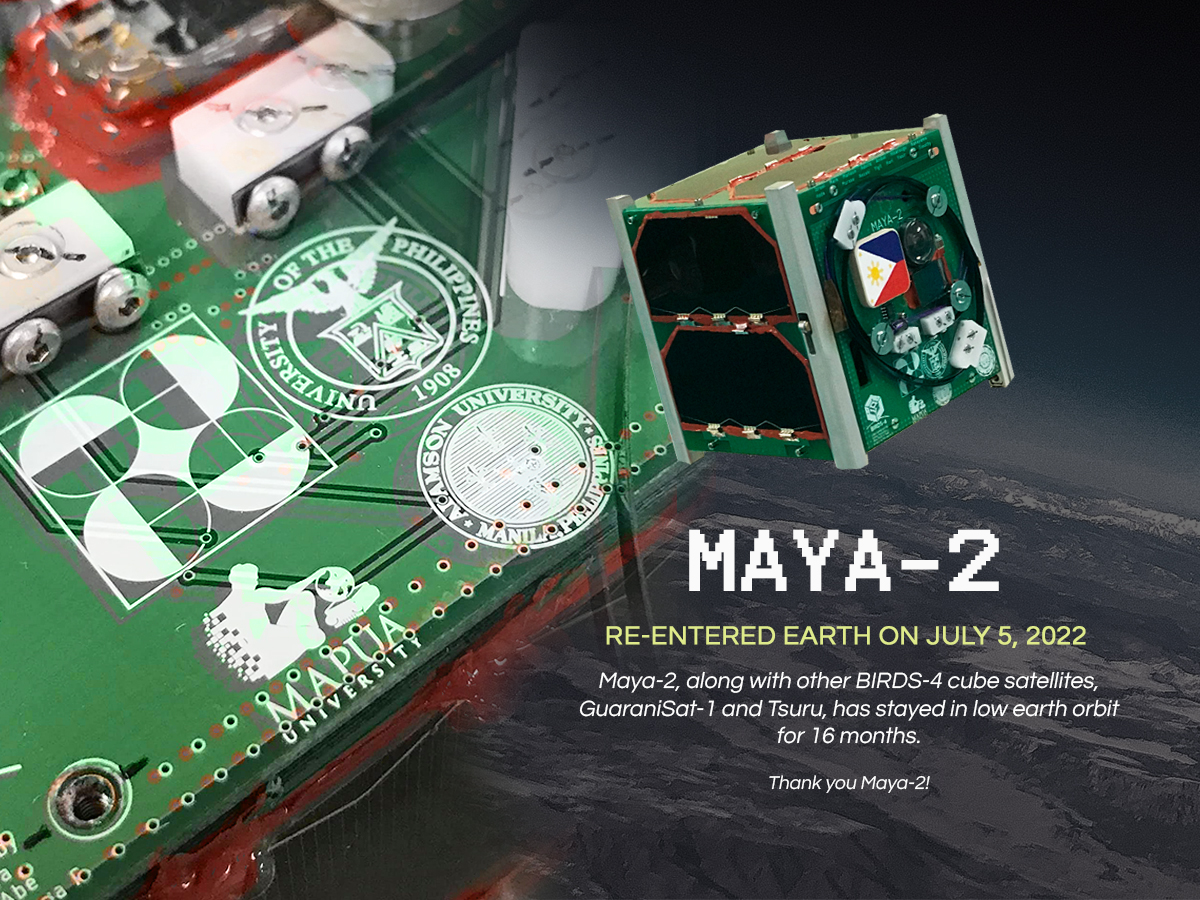
Maya-2 re-enters atmosphere, ends mission
After 16 months in space, the country’s second cube satellite (CubeSat) re-enters the Earth’s atmosphere, ending its mission on July 5, 2022.
October 6, 2021
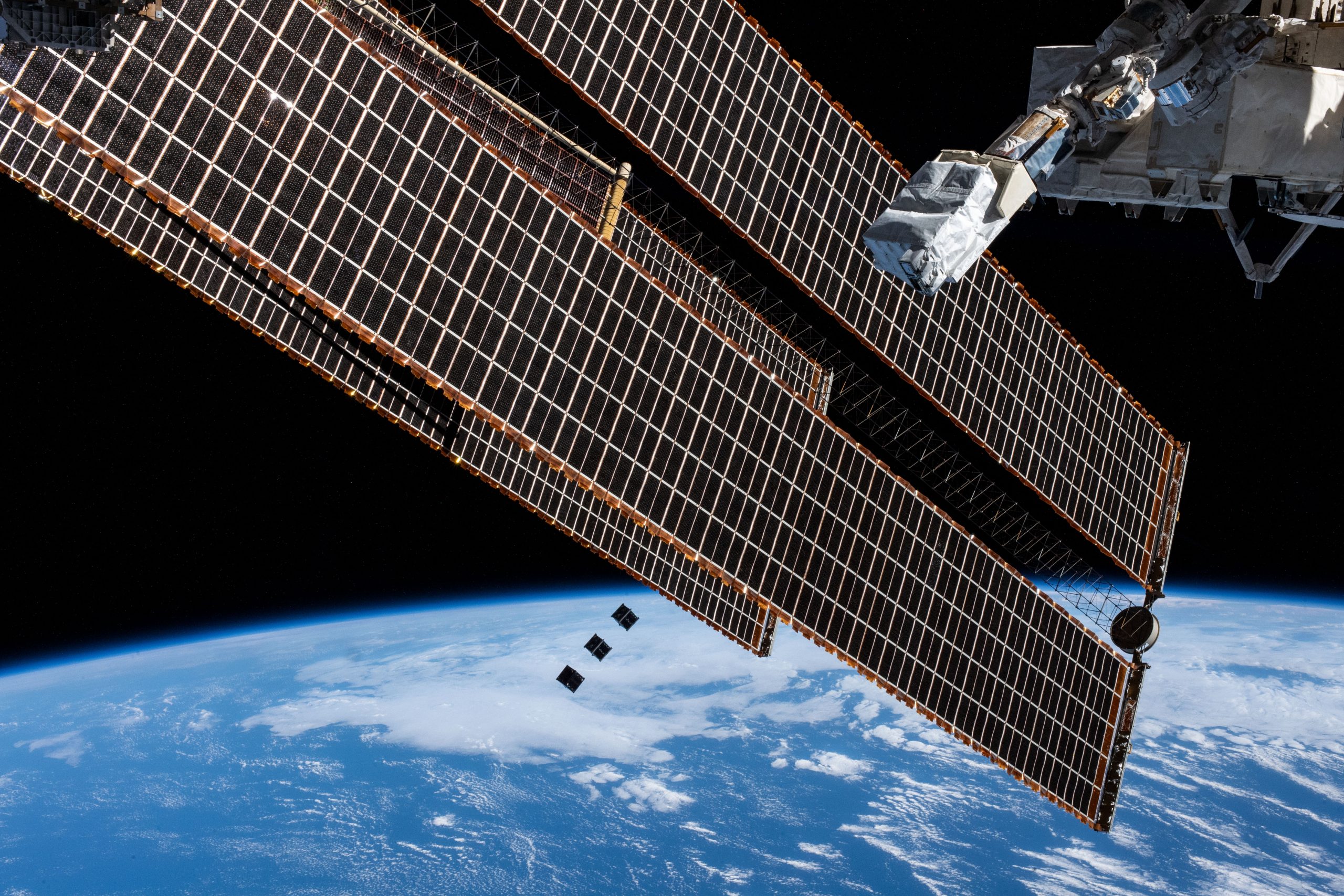
Maya-3 and Maya-4 cube satellites released to space from ISS, to begin operations soon
As of October 7, 2021, Maya-3 and Maya-4 beacons were successfully received and decoded during the 9:00 AM PST pass remotely through the Philippine Universities Ground Archiving and Data Reception (PUGAD) station in UP Diliman.
Photo captured via JAXA Live stream
Learn More
August 4, 2022
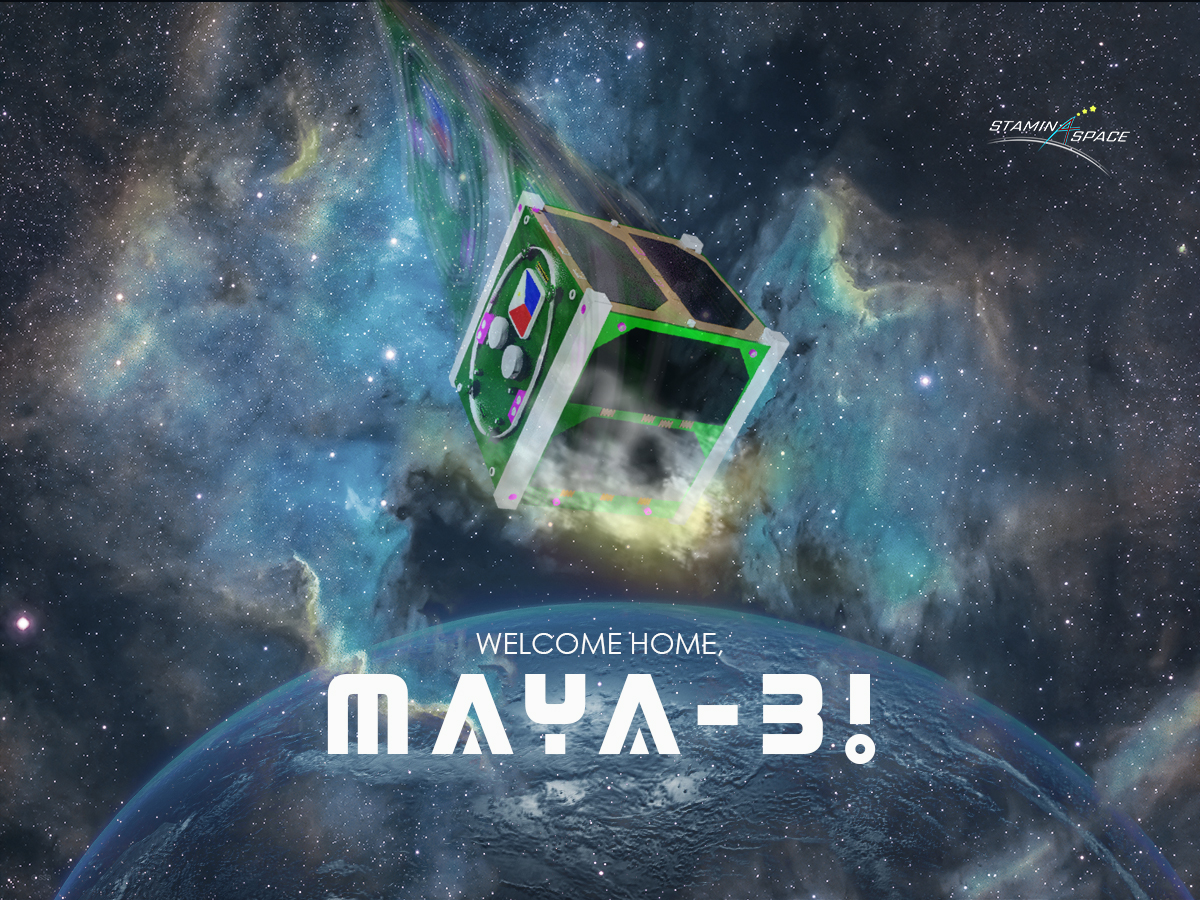
Maya-3 re-enters atmosphere, ends mission
After10 months in space, the Maya-3 cube satellite (CubeSat) re-entered the Earth’s atmosphere, ending its mission on August 4, 2022.
19 July 2023
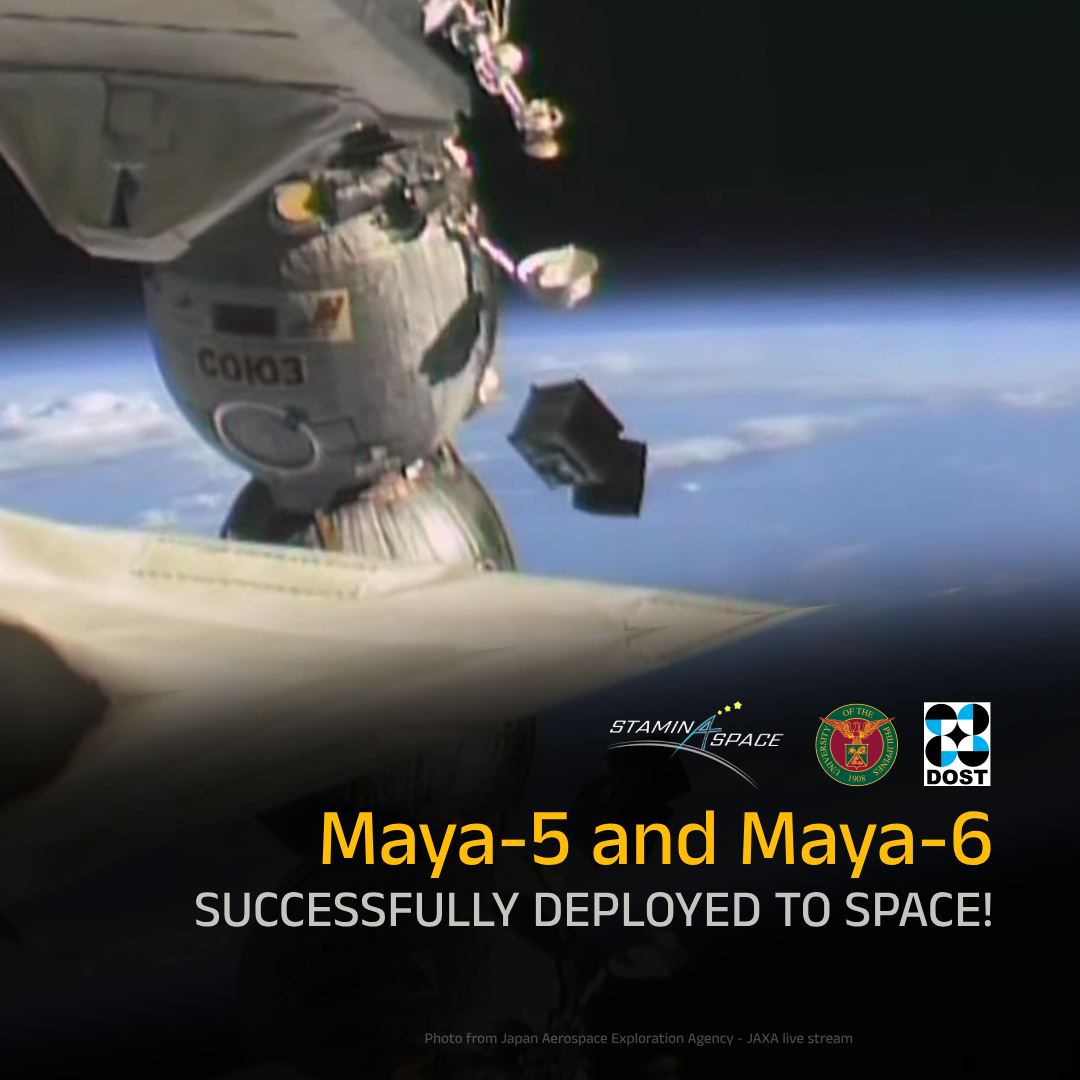
PH-built cube satellites, Maya-5 and Maya-6, deployed to space
The Philippines’ second batch of locally developed cube satellites (CubeSats) Maya-5 and Maya-6 were successfully released to space from the International Space Station (ISS) on 19 July 2023 at 3:00 p.m. PST as a part of the “Kibo” or Japanese Experiment Module (JEM) Small Satellite Orbital Deployer-26 (J-SSOD-26) CubeSat deployment mission.
6 June 2023
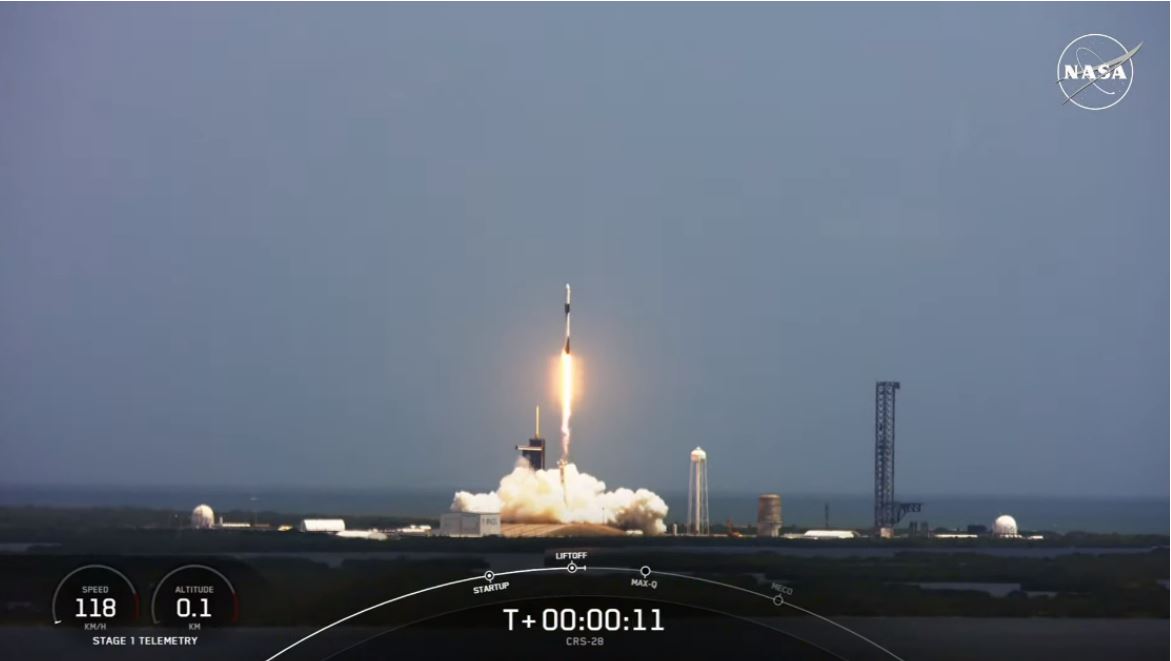
PH-built cube satellites, Maya-5 and Maya-6, deployed to space
The Philippines’ next batch of locally developed cube satellites (CubeSats) Maya-5 and Maya-6 were successfully launched to the International Space Station (ISS) on 05 June 2023 at around 11:47 PM PST. Maya-5 and Maya-6 are aboard the SpaceX Falcon 9 as part of SpaceX’s 28th commercial resupply mission. The CubeSats, weighing approximately 1.15 kilograms each, will move along an orbit similar to the space station’s at an altitude of approximately 400 kilometers once they are released to space.
December 2023
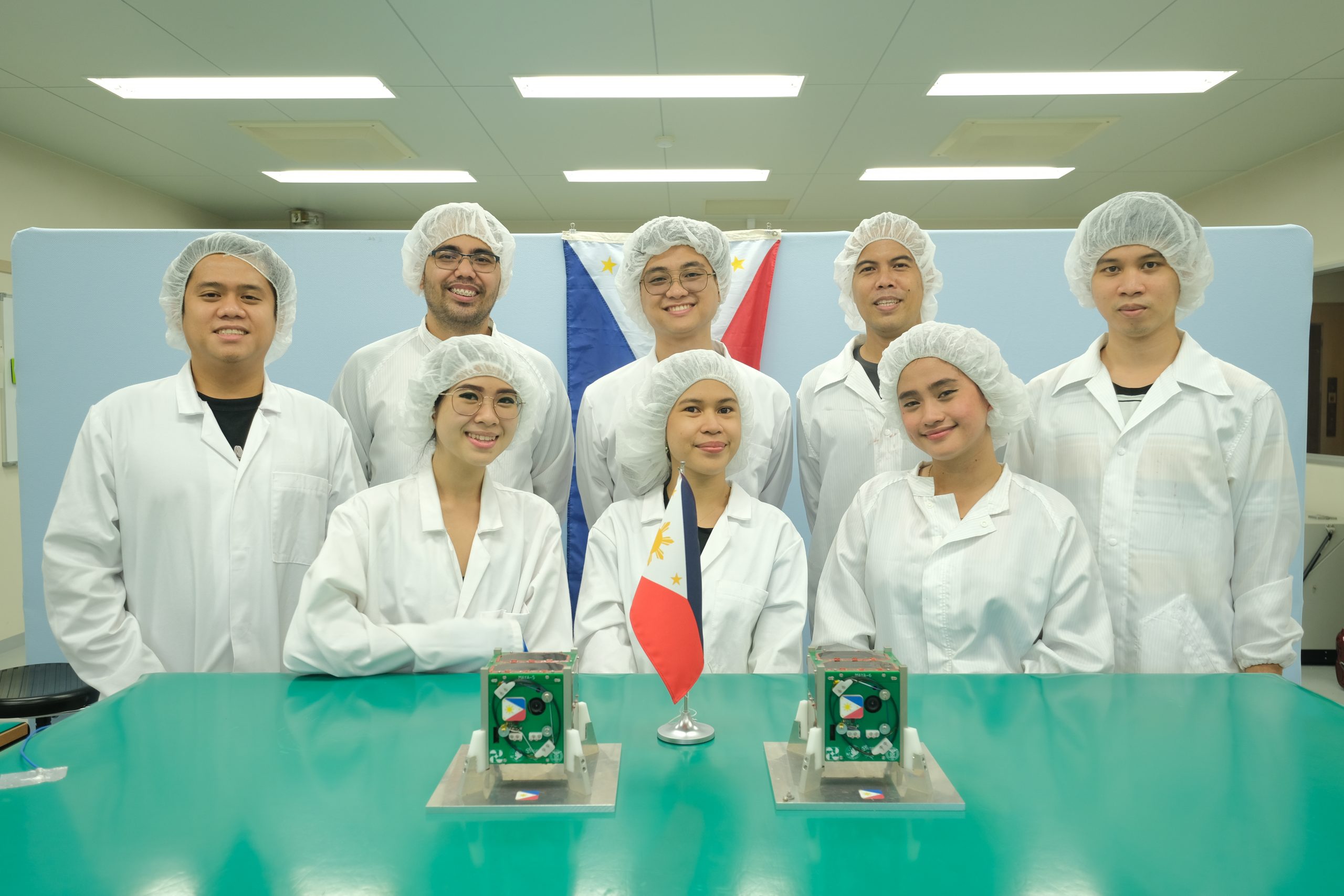
Maya-5 and Maya-6 re-enters atmosphere, ends mission
Almost half a year after their launch to space, Maya-5 and Maya-6 re-entered the Earth’s atmosphere on 9 December 2023 and 6 December 2023 respectively, ending their missions. Maya-5 and Maya-6 are the second set of Philippine university-built CubeSats, developed by the second batch of STeP-UP scholars.
In photo: The second batch of STeP-UP Scholars with the Maya-5 and Maya-6 cube satellites.
(clockwise) Ronald Collamar, Chandler Timm Doloriel, Joseph Jonathan Co, Genesis Remocaldo, Gio Asher Tagabi, Khazmir Camille Valerie Macaraeg, Anna Ruth Alvarez and Angela Clarisse Chua.